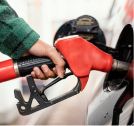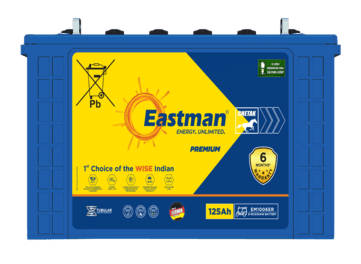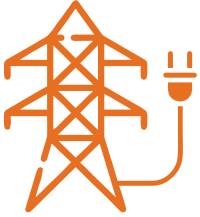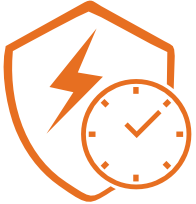Product Features
Low Cost of
Ownership
Low Water
Loss
Easy Recovery After Idle Period
Lowest Electricity Consumption in Recharging
Less Fumes
Generation
5% Extra Capacity & Backup w.r.t. Rated Capacity
Specifications
| EM1006ER | ||
|---|---|---|
| Capacity | 100 Ah | |
| Warranty | 6 Months | |
| Gross Weight (in KG) | 31.5 | |
| Battery Dimension (in mm) | 411x172x235 | |
Applications

Home

Office

Industrial Units

Hospitals

Schools

Petrol Pump
Blogs
Frequently Asked Questions
How many types of inverter batteries are there?
There are three main types of inverter batteries: tubular, flat plate, and lithium-ion. Each offers distinct advantages. Choose based on your specific power needs and preferences.
Which battery is best for inverter 150Ah or 200AH?
When deciding between a 150Ah and 200Ah inverter battery, it's crucial to consider your power usage, duration of backup needed, available space, and budget. While a 200Ah battery offers longer backup times and can handle higher power demands, a 150Ah battery may suffice for smaller setups with lower power requirements. Assess these factors carefully to make an informed decision and ensure uninterrupted power supply. Let's calculate the optimal backup time of the battery.
Backup Time of Inverter Battery = (Battery Voltage x Battery AH Rating) / Total Watts on Load
For example:
Battery voltage: 12V, Battery AH rating: 150Ah, Load requirement: 800 watts. Backup time of battery: (12 * 150) / 800 = 2.25 hours
Battery voltage: 12V, Battery AH rating: 200Ah, Load requirement: 800 watts. Backup time of battery: (12 * 200) / 800 = 3 hours.
What to look for when buying inverter battery?
When buying an inverter battery, consider factors like battery type, capacity, warranty, and maintenance requirements. Ensure compatibility with your inverter for optimal performance.
How do I keep my inverter battery healthy?
Maintain inverter battery health by regular charging, avoiding deep discharges, checking water level & replinishing it and ensuring proper ventilation. Follow manufacturer guidelines for extended lifespan.
Can we connect different capacity batteries?
It's not advisable to connect batteries of different capacities, it can potentially damage the batteries. Use batteries with the same capacity and specifications for optimal performance and longevity.
Can we add 2 batteries to inverter?
Adding 2 batteries to an inverter is possible, but they should have the same capacity and type. Moreover, your inverter should be able to support two batteries and for this you need an inverter with atleas 24V rating. Follow manufacturer recommendations for a safe and efficient setup.
Can a 200Ah battery run a fridge?
Running a fridge or any electrical device is primarily done by the invereter. A battery is source of power to the inverter. The battery capacity defines the duration of the backup based on the load begin run by the inverter. Ensure the inverter capacity meets both appliances' requirements for optimal performance.







